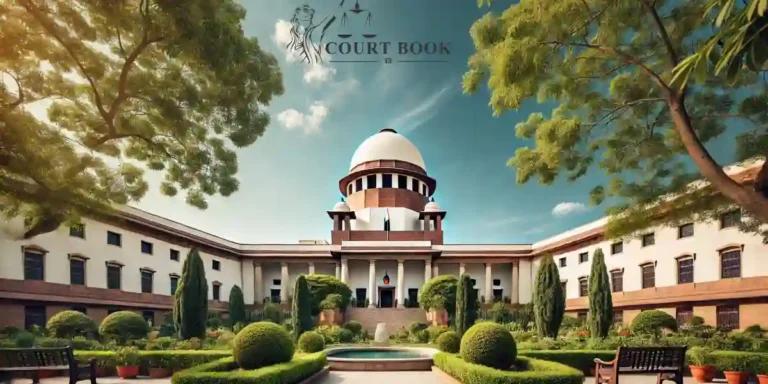In a significant ruling, the Supreme Court of India has clarified that sale transactions carried out under a valid Power of Attorney (PoA) cannot be invalidated simply because the PoA was cancelled at a later date. This decision came in the case of V. Ravikumar v. S. Kumar, where the Court upheld the Trial Court’s rejection of a plaint seeking to annul past sale transactions based on the subsequent cancellation of the PoA.
Background of the Case
The dispute revolved around a Power of Attorney executed by the plaintiff in favor of the first respondent on 15th October 2004. Using this PoA, the respondent carried out several sale transactions between 2004-2006 and 2009. However, in 2018, the plaintiff filed a suit seeking to declare these sale deeds null and void, claiming that he only became aware of the transactions on 21st September 2015. The plaintiff argued that the suit was filed within the three-year limitation period from the date of knowledge.
Read Also:- Supreme Court Protects Advocates from Criminal Liability Over Power of Attorney Verification
The defendant, on the other hand, filed an application under Order VII Rule 11 of the Civil Procedure Code (CPC), seeking the rejection of the plaint on the grounds that it was time-barred. The Trial Court agreed with the defendant, noting that the plaintiff had prior knowledge of the transactions as early as 10th January 2015, as evidenced by a patta (land document) attached to the plaint.
However, the High Court reversed this decision, ruling that the limitation period should be calculated from the date of cancellation of the PoA, which occurred on 22nd September 2015. This led to the defendant appealing to the Supreme Court.
The Supreme Court, comprising Justice Sudhanshu Dhulia and Justice K. Vinod Chandran, carefully examined the facts of the case. The Court noted that the plaintiff did not dispute the execution of the PoA in 2004 or the fact that the sale transactions were carried out under its authority. The plaintiff’s main contention was that the PoA was cancelled in 2015, and thus, the transactions should be annulled.
Read Also:- Supreme Court Verdict: Power of Attorney with Agreement to Sell Cannot Confer Ownership
The Court, however, rejected this argument, stating:
“We are clear in our minds that the cancellation does not affect the prior conveyances made which are clearly on the strength of the power conferred on the appellant. There is no contention raised as to the power of attorney having not conferred the power to enter into conveyances or that such power of attorney was executed by reason of a fraud or coercion employed on the executant. The power holder having exercised the authority conferred; to convey the properties in the name of the purchasers, the cancellation of the power of attorney will have no effect on the conveyances carried out under the valid power conferred. Nor would it confer the person who executed the power of attorney any cause of action, by virtue of a cancellation of the power conferred by a subsequent document, to challenge the valid exercise of the power when it existed.”
The Court emphasized that the cancellation of a PoA does not retroactively invalidate transactions that were lawfully carried out under its authority. The plaintiff’s attempt to unsettle concluded transactions after more than a decade was deemed untenable.
Read Also:- Supreme Court Reviews Centre's Unified Pension Scheme to Address Judicial Officers' Pension Concerns
Key Takeaways
Validity of Transactions Under PoA: The Supreme Court reaffirmed that transactions made under a valid Power of Attorney remain legally binding, even if the PoA is cancelled later.
Limitation Period: The Court clarified that the limitation period for challenging such transactions cannot be based on the date of cancellation of the PoA. Instead, it should be calculated from the date of knowledge of the transactions.
Finality of Concluded Transactions: The ruling underscores the importance of finality in property transactions, preventing parties from reopening settled matters after an unreasonable delay.
Appearances:
- For Appellant: Senior Advocate Haripriya Padmanabhan, Advocates Karuppaiah Meyyappan, AOR Raghunatha Sethupathy B, Advocates Kanika Kalaiyarasan, Madhav Gupta
- For Respondents: Senior Advocates Raghenth Basant, G Umapathy, AOR Sabarish Subramanian, Advocates Jahnavi Taneja, Vishnu Unnikrishnan, Danish Saifi, AOR Aditya Singh-1, Advocates Tushar Nair, Sujeet Kumar
Case: V Ravikumar v. S Kumar














